The guiding principles of Montessori education are the same across all age levels, and are grounded in over one hundred years of work with children around the world.
1) Respect
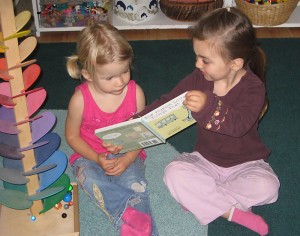 Maria Montessori profoundly respected children and the developmental powers that drive them to seek certain experiences. Montessori education reframes the adult/child relationship to place the child at the center of his own learning. At My Special School teachers respect children as separate and unique individuals. They guide children to respect the people, objects, and animals in their environment, and as the child grows older, to respect and understand the connectedness between all living and non-living things, leading to the adolescent’s profound awareness of the complex web of human existence.
Maria Montessori profoundly respected children and the developmental powers that drive them to seek certain experiences. Montessori education reframes the adult/child relationship to place the child at the center of his own learning. At My Special School teachers respect children as separate and unique individuals. They guide children to respect the people, objects, and animals in their environment, and as the child grows older, to respect and understand the connectedness between all living and non-living things, leading to the adolescent’s profound awareness of the complex web of human existence.
2) Prepared Environment
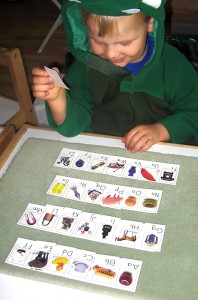 Children’s needs change as they move through stages of development. At each level of Montessori education, this difference is honored through the preparation of the classroom environment. Our environment is prepared in every way for optimal development: physically, cognitively, socially and emotionally. By aligning the activities in the environment with what each child needs at any moment, Montessori prepared environments liberate children’s energy for growth and learning.
Children’s needs change as they move through stages of development. At each level of Montessori education, this difference is honored through the preparation of the classroom environment. Our environment is prepared in every way for optimal development: physically, cognitively, socially and emotionally. By aligning the activities in the environment with what each child needs at any moment, Montessori prepared environments liberate children’s energy for growth and learning.
3) Hands-On Learning
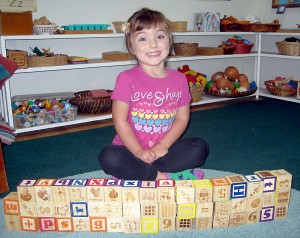 Montessori classrooms are interactive environments in which hands-on exploration is not only encouraged, it is necessary. By using the mind, the body, and the senses, learning becomes an activity that engages the whole self. Any parent will agree that children do; My Special School follows this natural inclination of children towards activity by offering an appropriate variety of objects and activities for meaningful engagement.
Montessori classrooms are interactive environments in which hands-on exploration is not only encouraged, it is necessary. By using the mind, the body, and the senses, learning becomes an activity that engages the whole self. Any parent will agree that children do; My Special School follows this natural inclination of children towards activity by offering an appropriate variety of objects and activities for meaningful engagement.
4) Discovery
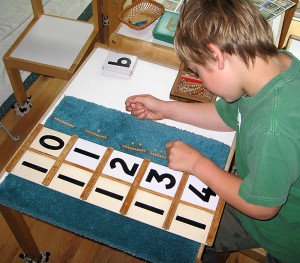 One of the most profound differences between Montessori education and conventional education is that, in Montessori, children are given the experience of discovering the answer for themselves. This leads to a much deeper learning experience, and creates a lifelong love of learning as a self-directed process of problem-solving and discovery.
One of the most profound differences between Montessori education and conventional education is that, in Montessori, children are given the experience of discovering the answer for themselves. This leads to a much deeper learning experience, and creates a lifelong love of learning as a self-directed process of problem-solving and discovery.
5) Imagination
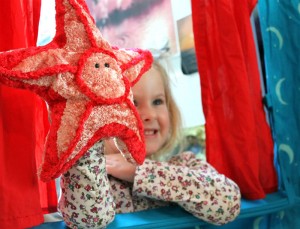 My Special School supports the development of imagination and creativity at every stage of learning. The open-ended activities allow children to explore new ideas and relationships, providing a foundation for self-expression and innovation. In the early years, the building blocks of imagination are firmly established through sensory exploration of the world, launching both imagination and creative self-expression.
My Special School supports the development of imagination and creativity at every stage of learning. The open-ended activities allow children to explore new ideas and relationships, providing a foundation for self-expression and innovation. In the early years, the building blocks of imagination are firmly established through sensory exploration of the world, launching both imagination and creative self-expression.
6) Freedom of Choice
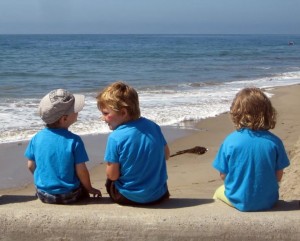 Maria Montessori recognized that when allowed freedom of choice within clear, firm and reasonable boundaries, children act in positive ways that further their development. Freedom is frequently misunderstood, and many people take it to mean that children can do whatever they want. Montessori believed that freedom without boundaries was abandonment. In My Special School, expectations are clear, and children experience the natural and logical consequences of their choices. This freedom within limits allows for the natural development of self-regulation within the society of the classroom, as well as mirroring behaviors expected by society in general.
Maria Montessori recognized that when allowed freedom of choice within clear, firm and reasonable boundaries, children act in positive ways that further their development. Freedom is frequently misunderstood, and many people take it to mean that children can do whatever they want. Montessori believed that freedom without boundaries was abandonment. In My Special School, expectations are clear, and children experience the natural and logical consequences of their choices. This freedom within limits allows for the natural development of self-regulation within the society of the classroom, as well as mirroring behaviors expected by society in general.
7) Independence
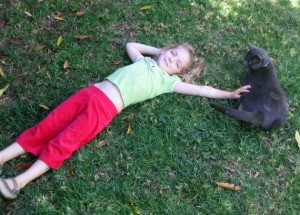 From the moment of birth onwards, humans strive towards independence. Children feel this need very strongly; they want to do things for themselves, and to participate in the world around them. At My Special School this natural drive towards independence is fostered through practical, social and intellectual experiences. The child becomes a participant in their own education, saying, “Help me to do it myself”. We honor this by helping children move to increasingly higher levels of independence and self-reliance.
From the moment of birth onwards, humans strive towards independence. Children feel this need very strongly; they want to do things for themselves, and to participate in the world around them. At My Special School this natural drive towards independence is fostered through practical, social and intellectual experiences. The child becomes a participant in their own education, saying, “Help me to do it myself”. We honor this by helping children move to increasingly higher levels of independence and self-reliance.
8) A Montessori-Trained Adult
The trained Montessori teacher links the child to activities and experiences in the prepared environment. Specialized training results in a deep knowledge of child development, the purposes and use of each activity, and an understanding of how to foster and maintain social harmony in the classroom.
